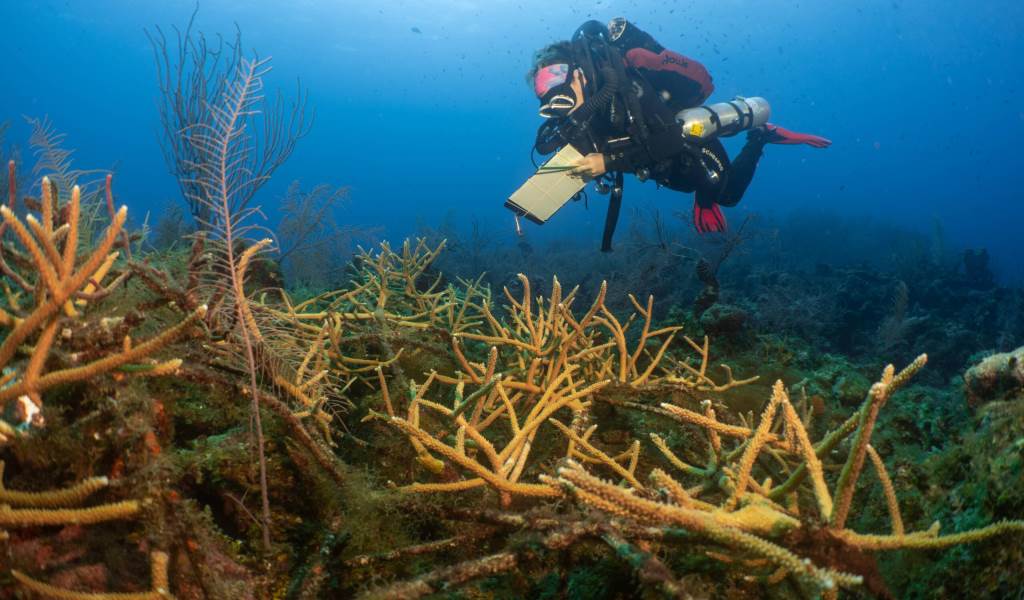The Central Caribbean Marine Institute (CCMI), based in the Cayman Islands, has been awarded a RESEMBID grant for €257,949 ($271,708 USD) to further their cutting-edge coral restoration research on Little Cayman in the Caribbean Sea.
RESEMBID is funded by the European Union and implemented by Expertise France (the development cooperation agency of the Government of France). It supports sustainable human development efforts in 12 Caribbean Overseas Countries and Territories (OCTs).
CCMI aims to rebuild coral reef ecosystem resilience through assisted evolution, via selective restoration with stress (heat and disease) tolerant corals.
The 18-month project will increase public awareness of the coral reef crisis, as well as strive to provide tangible coral reef adaptation methods for conservation managers throughout the region.
During these times of unprecedented rapid environmental change, it is critical to understand the capacity of corals to adapt to new conditions.
CCMI has been refining their restoration methods for 10 years, building on outplanting success due to their scientific approach to understanding disease and heat tolerance.
This grant supports CCMI’s in-situ project, which is one of the longest running empirically based coral restoration research projects in the region and will include collaborator Professor John Bruno (University of North Carolina), a specialist in this area.
Dr. Gretchen Goodbody-Gringley, project lead and Director of Research and Education at CCMI, indicates that investing in coral restoration is paramount for Small Island Developing States (SIDS) that are reliant upon reefs for protection, sustenance and economic stability.
She explains, “Coral restoration, consisting of outplanting nursery-raised corals to rebuild reef structure and function, is a popular approach to confronting local coral decline. Inspired by successful strategies used to restore other habitats, contemporary coral restoration approaches primarily consist of outplanting nursery-raised corals to degraded reefs.”
“Propagation and outplanting of nursery-grown corals has become so commonplace that coral restoration efforts are becoming capable of augmenting coral populations at ecologically meaningful scales. Scaling up in an efficient and cost-effective way is key to improving restoration practice… which in turn can contribute to both climate change adaptation and conservation strategy,” she concluded.
The restoration project outcomes will positively impact the wild coral reef ecosystems in Little Cayman (CCMI’s home), a Mission Blue Hope Spot, at a time when the need for marine protection is paramount.
Photo courtesy of CCMI.

